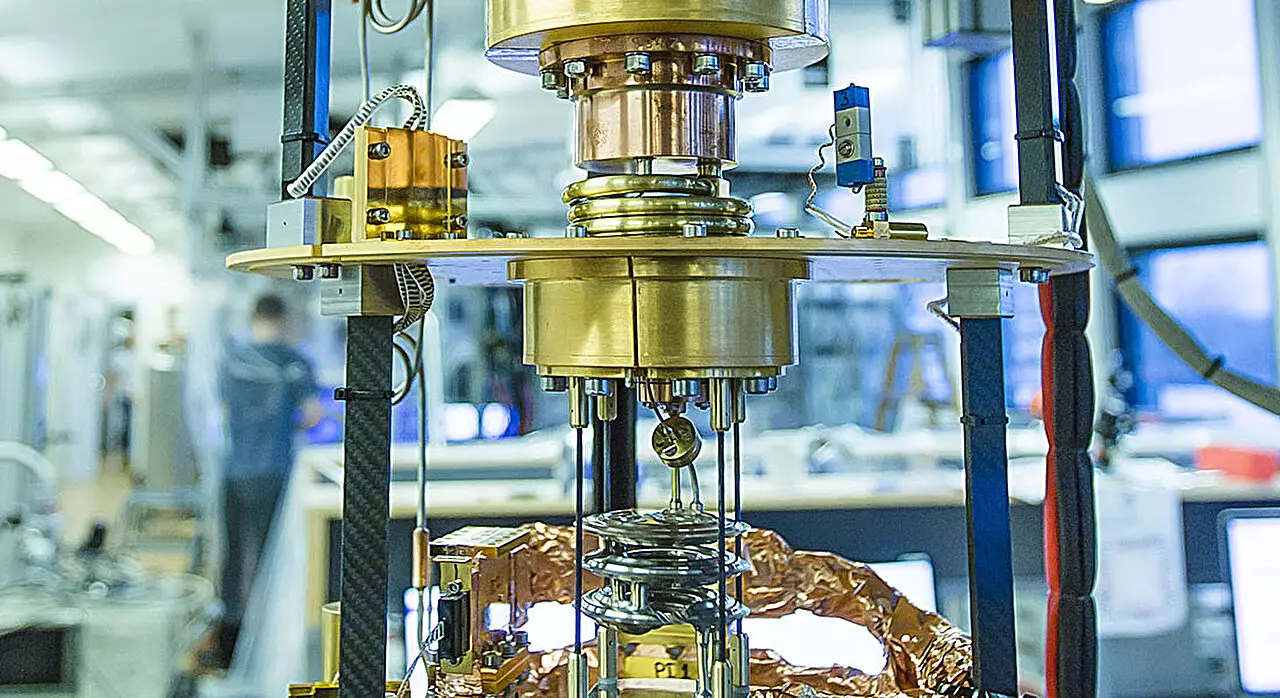Quantum computing has long been seen as the future of technology, offering the potential to revolutionize data processing and computational power. However, one of the biggest challenges in quantum systems has been the presence of noise, which can disrupt the functionality of quantum computers. Traditionally, scientists have sought to eliminate noise from quantum systems. However, a recent study conducted by researchers at the Niels Bohr Institute (NBI) has taken a different approach, proposing to use noise as a tool to enhance quantum information processing.
The research conducted by the NBI team, in collaboration with international partners, focuses on utilizing noise in real-time to process quantum information. The study found that by continuously monitoring noise in the environment and adapting the system accordingly, the performance of qubits, the fundamental unit of quantum computing, can be increased by up to 700%. This novel approach challenges the conventional wisdom of avoiding noise in quantum systems and instead leverages noise as a resource for improving computational capabilities.
The success of this new approach is made possible by recent advancements in high-tech fields, particularly in field-programmable-gate-array (FPGA) technology and machine learning. By utilizing FPGA technology to capture measurements in real-time and implementing machine learning algorithms for analysis, the researchers were able to adjust the quantum system on the fly. This real-time monitoring and adaptation play a crucial role in enhancing the performance of quantum computing applications.
In traditional computing, information is processed using bits, which have binary values of either 0 or 1. Quantum computing, on the other hand, utilizes qubits that can exist in multiple states simultaneously, enabling exponential increases in computational power. By controlling various quantum properties such as spin and entanglement, quantum computers have the potential to outperform classical computers significantly. The integration of spin qubits in gallium arsenide double quantum dots with advanced control mechanisms represents a significant step towards realizing the full potential of quantum computing.
The research conducted by the NBI team underscores the importance of interdisciplinary collaboration in advancing quantum computing technology. Bringing together expertise from various fields such as qubit materials, fabrication, hardware control, quantum information theory, and machine learning, the study demonstrates the necessity of collective efforts in pushing the boundaries of quantum computing. The collaborative nature of the research highlights the critical role that diverse perspectives play in solving complex challenges.
While the results of the study represent a significant milestone in quantum computing, the researchers acknowledge that there are still many hurdles to overcome. The next steps involve applying the novel protocol to different materials and systems with multiple qubits. The research team remains optimistic about the future of quantum computing, emphasizing the importance of embracing noise as a means of enhancing qubit performance. While the timeline for the development of practical quantum computers remains uncertain, the innovative approach presented in this study offers a promising pathway forward.
The groundbreaking research conducted by the NBI team opens up new possibilities for the future of quantum computing. By reframing noise as a valuable resource rather than a hindrance, the study challenges existing paradigms and paves the way for enhanced computational capabilities. As the field of quantum computing continues to evolve, interdisciplinary collaboration and innovative approaches will be key in driving progress towards the development of practical quantum computers.


Leave a Reply